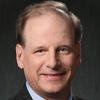Amgen v. Sanofi and Patent Enablement One Year Later: Guidance for Drafting, Defending, Challenging Patent Claims
Recording of a 90-minute premium CLE video webinar with Q&A
This CLE webinar will guide patent counsel on the Supreme Court decision in Amgen Inc. v. Sanofi and the implications one year after the decision. The panel will discuss the decision's impact on the patent enablement requirement. The panel will offer best practices for satisfying the patent enablement requirement or challenging that the requirement is met.
Outline
- The enablement requirement
- Amgen v. Sanofi
- Implications for enablement in courts and before the U.S. Patent Office
- Best practices
Benefits
The panel will review these and other critical issues:
- What lessons can patent counsel draw from the Supreme Court's decision when making arguments of enablement?
- What steps should counsel take to meet the enablement requirement when drafting patent applications?
- How can patentees and patent challengers leverage the decision in invalidity/unpatentability challenges based on enablement?
Faculty

John M. Augustyn
Shareholder
Leydig Voit & Mayer
John Augustyn successfully represents clients in high stakes intellectual property litigation, agreements, client... | Read More
John Augustyn successfully represents clients in high stakes intellectual property litigation, agreements, client counseling, and prosecution. Leveraging his prior experience in management and as an engineer at Fortune 100 companies, John understands that IP and business issues require creative and cost effective legal solutions. He has authored several articles and chapters for books, has appeared on multiple television and radio programs, has taught law school classes, and has provided over 30 CLE programs to thousands of corporate and outside counsel. His legal success has been recognized by selection to Best Lawyers, Super Lawyers, IAM Patent 1000, Top 100 High Stakes Litigators, Fellow to Litigation Counsel of America, and other honors. Please click on his photo above for more information.
Litigation
John has been lead counsel in patent and trade secret litigations throughout the country at the trial and appellate levels. He also has been lead counsel in Post Grant proceedings at the USPTO and coordinated post grant proceedings in other countries. In addition, he has litigated cases at the International Trade Commission. His litigation experience has involved several areas, including electronics, magnetics, sensors, control systems, medical devices, automotive, and consumer products.
Opinions
John counsels and renders opinions on patent infringement and invalidity including major product launches in competitive patent landscapes. These opinions often involve large patent families with multiple US patents and with existing litigations and patent office proceedings throughout the world.
Patent Prosecution
He has extensive experience in formulating patent strategies and managing patent portfolios. John manages the US and non-US patent prosecution for several international corporations. He has prepared or supervised the preparation of over 1000 US original patent applications and oversaw the prosecution of over 3000 non-US patent applications.
Due Diligence
John performs due diligence for mergers and acquisitions. The due diligence involves an analysis of the patents, trademarks, trade secrets, licenses, agreements, products, services, manufacturing processes, software, marketing, and standards by standard setting organizations.
IP Agreements
He successfully negotiates and prepares agreements relating to well-known products and brands for both the seller/ licensor and the buyer/ licensee, including patent licenses, technology licenses, trade secret agreements, joint venture agreements, trademark agreements, and research and development agreements.
Trade Secrets
John advises clients on trade secret matters including: litigating trade secret cases, negotiating trade secret agreements, advising clients on the best techniques for protecting their trade secrets, and helping clients decide whether to use trade secret versus patent protection.

Eric J. Hamp
Attorney
Banner Witcoff
Mr. Hamp assists clients in all aspects of intellectual property law, with a particular focus on the litigation and... | Read More
Mr. Hamp assists clients in all aspects of intellectual property law, with a particular focus on the litigation and enforcement of patent, trademark, copyright and trade secret rights. He represents clients from a variety of industries in the preparation and prosecution of utility and design patent applications before the USPTO, including applications related to the chemical, healthcare, mechanical, computer software, sporting goods, and household products fields. Mr. Hamp has successfully prepared and/or prosecuted applications in many technology areas, including for pharmaceuticals, food and beverage compositions, chemical catalysts, malware detection methods, and semiconductor devices. He also provides counseling and opinion work for utility patent, design patent, trademark and copyright matters, including freedom to practice and validity assessments, domestic and foreign infringement investigations, drafting of license and transfer agreements, and other strategy counseling.
Close
Professor Joshua D. Sarnoff
Professor of Law
DePaul University
Prof. Sarnoff has received numerous awards for his scholarship. He is an internationally recognized expert on the... | Read More
Prof. Sarnoff has received numerous awards for his scholarship. He is an internationally recognized expert on the intersections of intellectual property law, environmental law, health law, and constitutional, administrative, and international law. In June 2019, he testified before the Intellectual Property Subcommittee of the Senate Judiciary Committee on pending legislation to revise subject matter eligibility doctrine under Section 101 of the Patent Act. From January 2014 to July 2015, he served as the Thomas A. Edison Distinguished Scholar at the U.S. Patent and Trademark Office. Prof. Sarnoff directed the DePaul Center for Intellectual Property and Information Technology (CIPLIT®) and organized and moderated the 2018 Jaharis Health Law Symposium on Emergency and Technological Responses to Pandemic Diseases and the 2011, 2015, and 2019 Intellectual Property Scholars Conferences (IPSC). He also hosts the annual Edward D. Manzo Scholars in Patent Law series.
Close